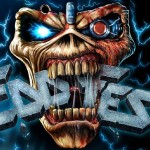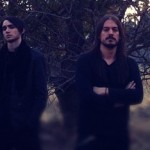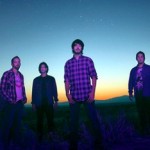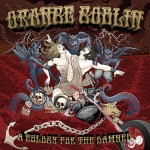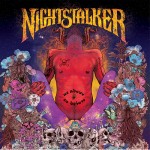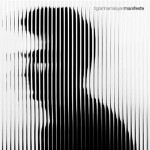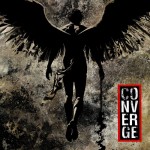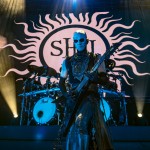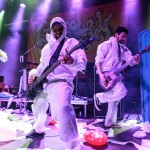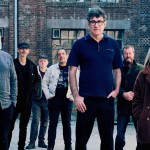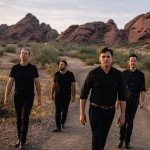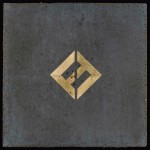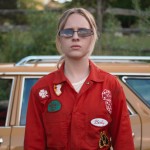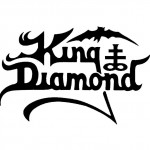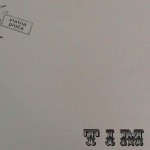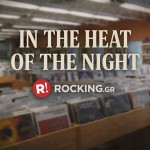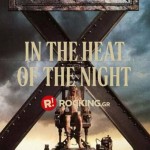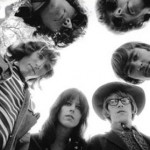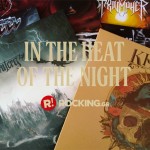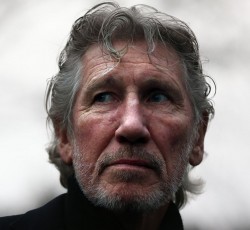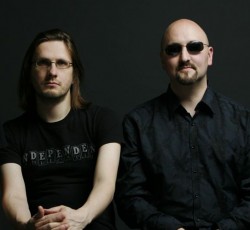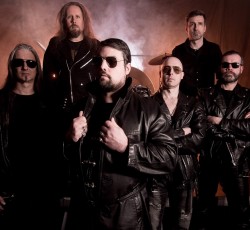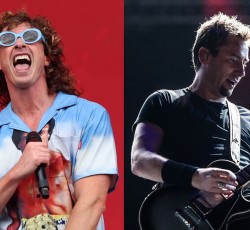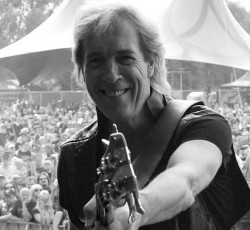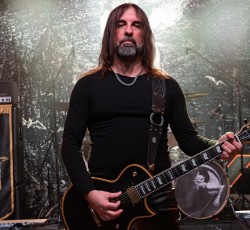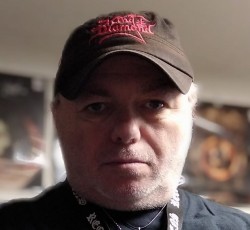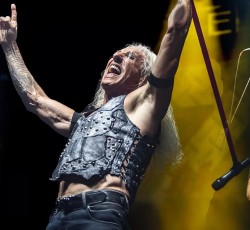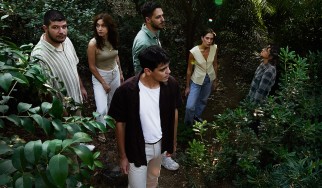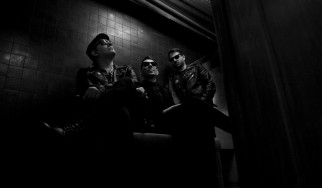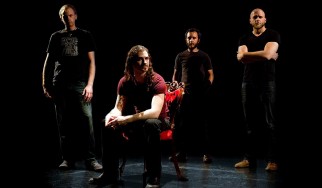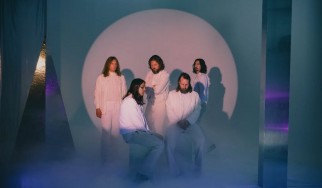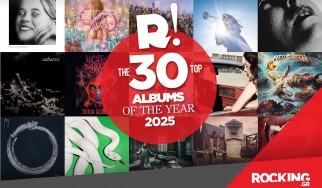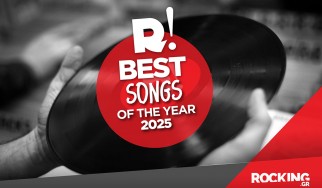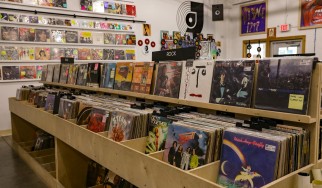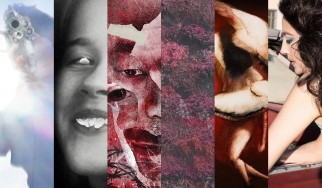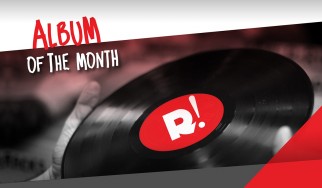Brian Cook (Sumac & more): "I work with musicians much more talented than I am!"
With Sumac's live performance in Athens as a starting point, the person behind the bass of some of our most beloved bands speaks about Sumac's career and his own personal journey
Για την ελληνική εκδοχή της συνέντευξης, διαβάστε εδώ.
Brian Cook is an artistic figure that no lover of extreme sounds, especially of post-hardcore and post metal genres, cannot confuse with another person. A leading force behind the bass of bands that set the base for the aforementioned music genres, such as Botch, Russian Circles, These Arms Are Snakes and later being one third of Aaron Turner's Sumac, Brian Cook is for sure an unstoppable source of musical knowledge and information. With the upcoming Sumac's live show in Athens as a starting point, we took the opportunity to speak with Brian in depth.
Our conversation started at first on the latest Sumac works, those being their personal album "The Healer" and their collaborative album with Moor Mother, "The Film", but also the live performances of those albums on Roadburn festival (an experience that as of now has been completed and our team witnessed, soon you will be reading about this). The conversation though quickly expanded in Sumac's past, the collaborative albums in general, Brian's inspirational sources in the bands he participates and for his entirely personal projects, improvisation, music industry today, as well as many other subjects in a very structured train of thought coming from Brian. So trust yourselves upon the deafening sonic world of Sumac, while we wait to meet them once more for an unforgettable live experience.

Hello and welcome to Rocking.gr Brian!
Hello, thanks for inviting me here!
Well for sure 2024 that recently ended has been a very productive year for Sumac. You released your newest album, "The Healer". How has the creative process been for this album?
Working on "The Healer" was an enjoyable process. I don't think we could've made this record without having been a band for a decade. But we've been working towards this type of fusion of structure and improvisation since we first started playing together, and I think we have a chemistry together at this point that enables us to move between the two approaches fluidly.
Even though our music may be ugly from a sonic perspective, the lyrics are not meant to feel oppressive or bleak. They are meant to be reflective
Heaviness is a constant element on your sound with Sumac. How important is it for you to incorporate such music elements in your sound? Can sometimes being involved mainly with heavy music genres be restricting or the opposite? And how do you feel is this element expressed lyrically?
I don't feel restricted by heavy music. Maybe that's because I've always had other creative outlets. But I've also found that sometimes having specific boundaries is actually very helpful. It helps you focus. Our music is very physical, and being heavy gives the music extra weight and physicality. As far as how that approach plays out in our lyrics, I would say that I think Aaron aims to use the tonality and vocabulary of heavy music but uses it to explore the full spectrum of human emotion. Even though our music may be ugly from a sonic perspective, the lyrics are not meant to feel oppressive or bleak. They are meant to be reflective.
As a bassist I view my job as fusing the drums and the guitar together
Another very strong and important element of Sumac's legacy is improvisation. How do you put yourself in this position both as an artist in general and as the person behind the bass? Is it more challenging on the studio or while playing live?
Improvisation is very important to us and it is definitely challenging. We are not a jam band that uses a method like the Nashville Number System where we're still playing within the defined parameters of a specific chord structure, or even a defined musical key. Different improvisational sections in our music require different approaches, so there's no easy default formula. It's particularly challenging as a bassist because I view my job as fusing the drums and the guitar together. Rhythm and melody are very crucial, but those components are often rendered null and void in our work, so the challenge is to find an appropriate place in the ensemble where I'm not cluttering or muddying the overall sound. In a lot of instances, I think less about music and more about sound design. There isn't much difference in pressure between doing these sections live versus in the studio. Either way, there is pressure to help facilitate the overall sound.

Your bass tone in Sumac is massive, yet clear. Can you walk us through your current setup and what you're chasing sonically?
I currently play an Electrical Guitar Company aluminum neck bass through a Fuzzrocious Cat Tail distortion pedal into either a Hiwatt DR201 or a Science Mother amp into an Ampeg 8x10. I want a punchy, gritty, midrange heavy bass sound… like a Nomeansno 45rpm record played at 33rpm.
How is it like to be working in a project with other musical masterminds of the likes of Aaron and Nick?
I'm humbled to work with Nick and Aaron. I have a long career of working with musicians who are much more talented than I am and that continues with SUMAC. I'm just happy to be along for the ride. Haha!
The overall goal with our sound is to challenge both ourselves and the listener while retaining the emotional weight of our music
How do you feel the musical journey of Sumac has evolved through the years, especially at difficult times such as the release of "May You Be Held" during the global quarantine? Do you believe it's getting heavier, more complex with a purpose, or do you just go with your own flow, album by album?
Well, Aaron really steers the ship, so the general tone of the band evolves as he sees fit. My personal goal within the band is to constantly improve and refine my approach, which aims to punctuate and round out the music without cluttering it up. I want to play as simply as I can so that all the intricacies of Nick and Aaron's playing are audible. Obviously, I would like the bass lines to be interesting, so there is a deliberate attempt to have some movement and deviation from Aaron's guitar riffs, but I'd rather have fewer bass notes with greater impact than lots of bass notes that just overwhelm the listener. But I think the overall goal with our sound is to challenge both ourselves and the listener while retaining the emotional weight of our music.
Another person that you collaborate on multiple projects is of course Kurt Ballou. How is it like working with him?
I love working with Kurt. We've known each other for nearly 30 years, so there is a comfortable familiarity there. He's a very knowledgeable and skilled engineer, obviously. So that's a huge benefit. But I also think he's good at weighing in with his opinion when it's needed and good and letting us guide ourselves when we're doing something that might not make a lot of sense upon initial exposure. There's a mutual trust and respect there.
I've served a variety of roles over the years in my musical projects, and I enjoy that variety. It all exercises different parts of the creative brain
How has it been for you as an artist to balance your creativity between a few amazing acts such as Russian Circles and Botch and formerly These Arms Are Snakes? How do you separate your inspiration between the projects?
I enjoy working with other musicians and seeing how their brains work, and how the chemistry changes based on the personnel involved. As I mentioned, I've been very fortunate to work with some very talented people. As a bass player, I really see myself as a supporting member of the band as opposed to the creative center, even if I do impose my own vision and will upon the bands at times. And ultimately, there is a different level of creative direction in each band. Botch was very much a democracy for songwriting, but our guitarist David and drummer Tim were definitely the masterminds that came up with the majority of the material. These Arms Are Snakes were a democracy as well, but I was usually the guy that showed up to practice with ideas to work on, so most of our material stemmed from my riffs.
I came into Russian Circles after they'd already put out a record and done a bunch of touring, so I didn't want to fuck with the formula between Mike and Dave… I just let them create the skeletons of the songs and then help fill them out. That said, ever since the Geneva album there has typically been a song that I brought to the table, and our songs tend to evolve a lot as we work on them together as a trio. Sumac is Aaron's vision, and the songs always start with a guitar framework that he's built, so I see it as my job to help accentuate what he's created. This is all a very long way of saying that I've served a variety of roles over the years, and I enjoy that variety. It all exercises different parts of the creative brain.

Where does the need and actually time come from, to find the space for your own personal projects? You have both released a solo album called "We Left A Note With An Apology" and a book, "The Second Chair Is Meant For You". Are these projects a way to express exclusively your personal thoughts and creativity?
Yeah, I think you've articulated it perfectly. It was very rewarding to work on the Torment & Glory album—We Left A Note With An Apology—because it was 100% my vision. But it was also difficult because I'm so used to bouncing ideas off of bandmates, and I had to just trust my own ears for this project. I worked on it at the same time Russian Circles was writing "Gnosis", and it was very helpful to have something that was completely mine to work on one day and something that was a group effort the next day. It helped keep my ego in check. Writing a novel is an even more extreme version of that solo vision. Like, you can't really share a rough draft with a bunch of friends and ask "what do you think?" Or maybe you can, but I'm not comfortable forcing that task on more than one or two close confidants. So you just work in isolation for years and hope that what you're making isn't a complete waste of time. But for me, having a writing project like a novel is very therapeutic because you can always work on it in your head when you're laying awake at night or when you're stuck in traffic. It's like meditation or something. You can transport yourself out of a boring or mundane situation by building an alternate world in your brain.
It was an exciting challenge to meld our approaches and ideas together with Moor Mother
This year you took part as Sumac in a very interesting project. I am speaking of course about "The Film" your collaboration with Moor Mother, a multilayered work that I have had the pleasure to listen to and I must say, it left me speechless. How did this project came about?
The Sumac / Moor Mother collaboration came about because there was a mutual admiration between the artists. We'd thrown around the idea of playing some shows together, and then someone… I can't remember if it was Aaron or if it was Camae (Moor Mother) that proposed the idea first… pitched the idea of doing a collaboration. It was an exciting challenge to meld our approaches and ideas together. Camae is such a multifaceted artist and she had a real gift for navigating the compositions we brought to the table while helping craft the overall trajectory and shape of the album. It was a pleasure to work with her, and, as with all collaborations, it was a pleasure to walk away from the process feeling like I'd learned something.
We have another studio album we recorded with Keiji Haino earlier this year, though I'm not sure when that will be released
You also quite recently released a collaborative album with Keiji Haino, "Into Our Juvenile Apocalypse Our Golden Blood To Pour Let Us Never". How did you decide to work with Keiji Haino and where does the album title come from?
We've done a few records with Keiji Haino. We did a studio album with him some years back on our first tour of Japan. Then we played a live set with him, which was also released as an album on Trost Records a few years later. "Juvenile Apocalypse" was recorded at a live performance in Vancouver BC at a later date. And we have another studio album we recorded with him earlier this year when we were on tour in Japan that I'm very excited about, though I'm not sure when that will be released. Aaron reached out to Keiji Haino shortly after the band formed to inquire about working together sometime, and we were very honored when he agreed. We were especially honored by this latest recording session, which was coordinated at Haino's request. As with all the song titles, the album names are entirely Haino's idea, so I can't speak to their meaning.
There's a balance to find in collaborative albums, in playing a subordinate role to the music while also putting your ideas forward
How do you fell about collaborative albums in general? It seems to me that there have been quite a few more the past ten years especially during/after quarantine. Who is an artist you would love to collaborate and with which project?
Collaborations are interesting. I think there's always a bit of a gamble with them because you're trying to calibrate the creative chemistry in a very short period of time. It's not like starting a new band and taking your time to figure out everyone's roles and strengths. These have been very quick projects. I enjoy them because they take us out of our comfort zone and force us to think in new ways. I think there's also a balance to find in playing a subordinate role to the music while also putting your ideas forward, and that can be tricky when there's an established structure and workflow in the band that gets offset by collaborators. I will always prefer our studio albums to our collaborations just because they are more focused and aligned to my personal artistic aims, but I also think the collaborations are exciting forays into new territories, and I generally find that I get more out of the listening process when I revisit them because I'm still wrapping my brain around the material. As far as artists I'd like to collaborate with… we've done a couple of live collaborations with Caspar Brötzmann and I'd love to do more with him. Those Caspar Brötzmann Massaker albums have been an enormous inspiration since back in the Botch days.

What are the things you are noticing the most to have changed after the global pandemic in the heavier music scenes? Do you notice any genres being more popular? Have you noticed any good new bands that got your attention?
I think the return to "normal" after COVID has taken quite some time. I really only feel like things have returned to pre-COVID equilibrium in the last year or so. There are a few professional changes I've noticed… the live music world has moved even further away from being a cash-centered business to a credit card / electronic payment system. And venue workers have been telling me that there are generally more no-shows with pre-ordered tickets.
As far as musical styles, I might be projecting my own experiences here, but I feel like I spent A LOT of time exploring new music during the pandemic, and I ordered A LOT of records online because it was a little boost of happiness and it felt like an important way to keep artists and labels afloat. That habit continued into 2021 and 2022, but I now feel like I lack the time to do that much investigating of new music, especially considering that I have a backlog of new music in my collection that I still need to spend time with. I've talked with a few friends that run labels and they've said there's been a general slowdown in sales in the last year or so, so I wonder if my experience is indicative of a larger trend.
As far as new music styles, it's hard to really gauge the broader trends of what's popular because I've grown tired of most of the major music writing outlets in the US as I feel like a lot of it is either a regurgitation of PR press materials or too concerned with getting a broader readership by pandering to pop music. It's tough to weigh in on new artists as I've mainly been filling up the blindspots in my musical knowledge of classic rock and early metal classics and random ‘70s jazz stuff. As far as new stuff, I generally look to metal labels like Sentient Ruin and Mi Saco Un Ojo or weird synth stuff like the records my buddy Andrew at SFI Recordings puts out.
We're prepared to play both albums at Roadburn, but it is A LOT of material and I'm pretty nervous about it
You will very soon play live both "The Healer" and "The Film" during Roadburn Festival and we will have the pleasure to meet you there. What should one expect from those two shows?
Well, we just did our first performance of "The Film" with Moor Mother last night in Berlin and we played "The Healer" in full in Tokyo back in February, so I'm hoping that means we're prepared to play both albums at Roadburn, but it is A LOT of material and I'm pretty nervous about it. Haha! But I think it should be a good time.
The crowd in Athens should be prepared for it to be LOUD
You will soon also visit Greece for a headline show. You have been in Athens both with Russian Circles and Botch, what are your expectations now for the upcoming live show with Sumac?
The crowds in Athens have always been amazing. I realize that sounds like I'm pandering with flattery, but I swear I'm being honest! Greece is such a far place to travel to but the people make it totally worth it. So I'm expecting the show to have a lot of strong energy. And the crowd should be prepared for it to be LOUD.
Thank you so much for taking the time for this interview. Please, summarize this one however you like, expressing your thoughts to your fans and our readers.
I don't have a lot to add here. Thank you for your time and interest!

